Ayurved Darshanam (आयुर्वेद दर्शनम)
₹149.00
| Author | Prof. Priyavrat Sharma |
| Publisher | Chaukhambha Viswabharati |
| Language | Hindi & Sanskrit |
| Edition | 2017 |
| ISBN | 978-93-81301-82-1 |
| Pages | 152 |
| Cover | Paper Back |
| Size | 14 x 4 x 22 (l x w x h) |
| Weight | |
| Item Code | CVB0014 |
| Other | Dispatched in 1-3 days |
10 in stock (can be backordered)
CompareDescription
आयुर्वेद दर्शनम (Ayurved Darshanam) During the last more than fifty years of my academic career I have been constantly pondering over the basic concepts of Ayurveda and writing on various topics. My first article on ‘critical study of ojas’ appeared in 1941 in the then reputed journal of Ayurveda ‘Sudhanidhi’ edited by Ayurveda-pañcānana Pt. Jagannath Prasad Shukla of Allaha- bad. Almost all my ideas were published in the form of articles in different journals from time to time the number of which has come to about 450 uptil now. The present book ‘Ayurveda-darśanam’ is, in fact, collection of all such ideas more refined in the light of intuition and experience and set in the ancient style of aphorisms. In childhood, I was primarily trained in sanskrit and it gives me pleasure to write in that gods’ language. So I also wrote annotation in sanskrit. But looking to the difficulties of the present generation I had to work further for the translation of the entire material in Hindi and English. As these translations are from the author’s own hand, it may give the original flavour to the readers.
The word ‘philosophy’ here has been used in wider connotation comprising metaphysical aspect, basic concepts and philosophy of approach to medicine. Medicine being a secular science, never sticks to any dogma and utilises all the available ideas to interpret the physio-pathological phenomena. That is why the ancient seers discu- ssed all the different views prevalent at that time and made use of them in proper cases. Because of having broader outlook and integra- ted approach they have been called as ‘Prthudarśin’ (SS.Sa. 1.11). An effort has been made to highlight this approach which has been vitally significant in development of the basic concepts of Ayurveda.
The book has been divided into four sections (quarters)-prameya- pādā, pramāņapāda, prakrtipāda and vikrtipāda. Prameyapāda covers almost half of the book and discusses the basic concepts of Ayurveda. Pramānapāda deals with the investigation (parikşă) and its means. It is important to note that Caraka has used the word ‘parikşä’ for pramana (means of valid knowledge). Prakrtipāda deals with the metaphysical aspect and concepts relating to health. The last quarter,vikrtipāda, discusses the different aspects of disease and approach to their treatment.
In the context of prameyas (objects of knowledge), it has been established that śarīra (body), sattva (psyche) and atman (soul)-these three are the padārthas of Ayurveda and not the so much publicised six padārthas-dravya, guņa, karma, sāmānya, viśeşa and samavāya – enunciated by the Vaśeşika system of philosophy. They have been taken as ancilliary to the above three padarthas for their interpretation. Since long the definition of ‘dosa’ has been a matter of controversy and has been discussed at length in the commentaries of illustrious scholars like Cakrapāņidatta, Vijayarakşita etc. but I observed that no commentator has emphasised or even touched the relation of doşa with prāna which is so vital and essential. Doşa can’t exist without prāna, it emerges with prāna and departs threwith. Moreover, they dwelt upon only upon the negative aspect of doşa by exposing their essential role in pathogenesis while ignoring their important role in controlling and regulating the physiological functions. In order to remove all these discrepancies, I have proposed a new definition of dosa which covers all these aspects and fulfills other requirements too.
Similarly in case of agni the traditional view is to emphasise on the jātharāgni because it tackles the food first and prepares it for further processing but, in my opinion, it is the bhūtāgni which is the most important one as the final conversion is in the form of bhūtas which constitute the body elements. This point has been amply clarified.
In section on pramānas, a detailed examination of yukti is given. Caraka, besides describing pratyaksa, anumana and äptopadeśa, has accepted yukti as a pramāna which is an original contribution to the field of dialectic. Unfortunately the commentators did not undertand its significance properly and followed the footsteps of non-medical philosophers like Säntarakşita and Kamalašila. I have tried to provide proper interpretation of yukti and its special significance in medical science. Yukti, In fact, is rational combination of various factors which contribute to health and disease. This is a concept developed during the sanhită period on which stands the yuktivyapāśraya (rational medicine) of Ayurveda.
In prakrtipäda the word ‘prakrti’ denotes both primal source of creation and health and as such both aspects have been dealt with therein. Caraka has established samyoga (conjunction) as the cause of creation and bondage while getting rid of all conjunctions is liberation. This sanyogavāda is a unique contribution to the Indian philosophy but it has not received proper attention of the scholars ancient as well as modern. This point has been discussed at length. Prakrti as equilibrium of dhātus as the basis of health has also been clarified in relation to its various aspects.
In vikrtipäda, the nature of pathology, diagnostic features and approach of physician have been discussed along with the concept of svabhāvoparamavāda enunciated in the Caraka-sanhitä. Ayurveda only assists Nature and in no way suppresses or replaces it-this is the core of the therapeutics of Ayurveda. Vägbhata has rightly said it as like manual support (hastålamba).
It is difficult to produce a work in ancient style but I have done it with the realisation that it is the best form of expressing the ideas accurately and in measured words. I crave the indulgence of readers, while going through the book, to keep in mind my limitations on one side and the onerous task on the other.




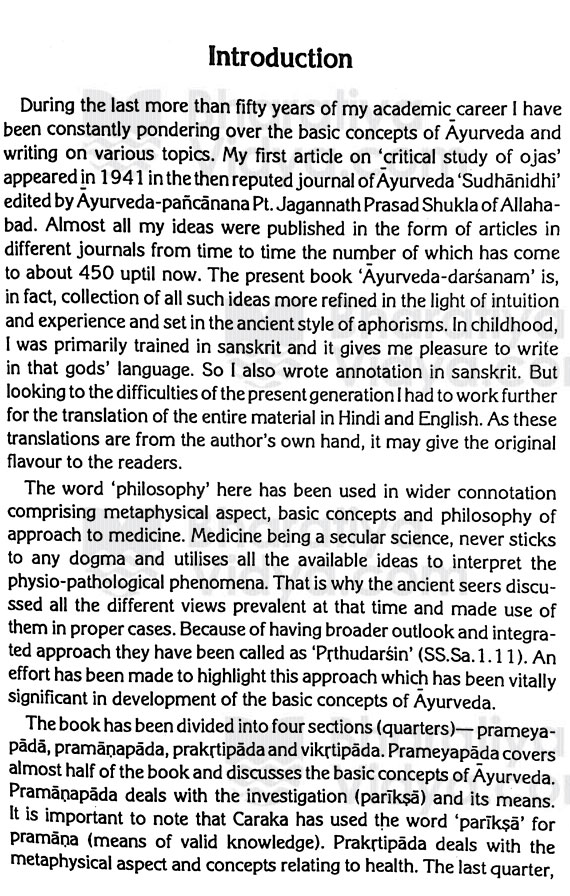
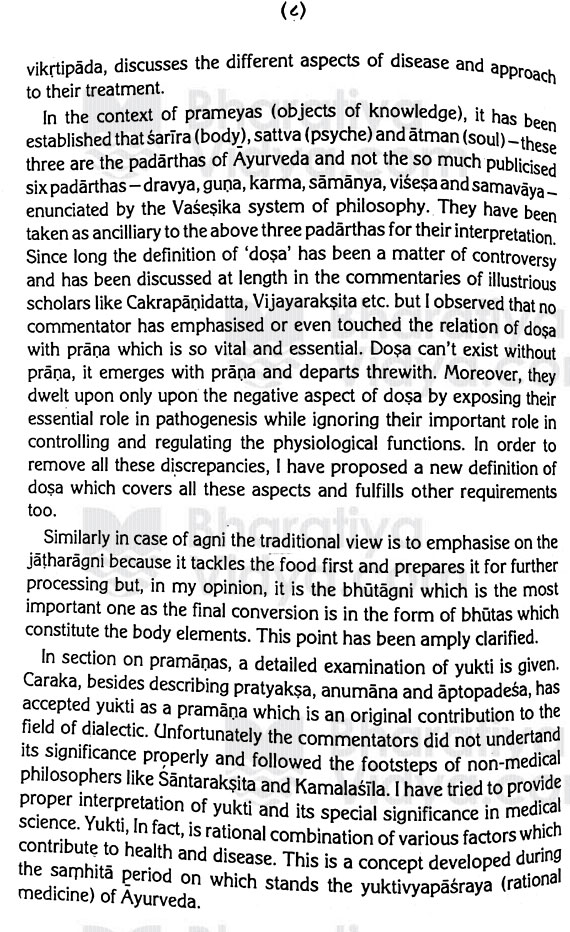
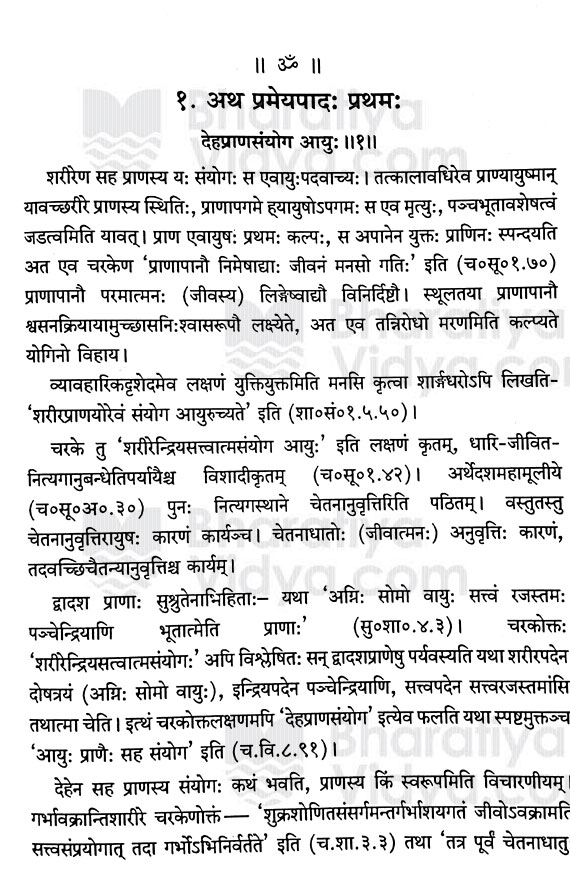
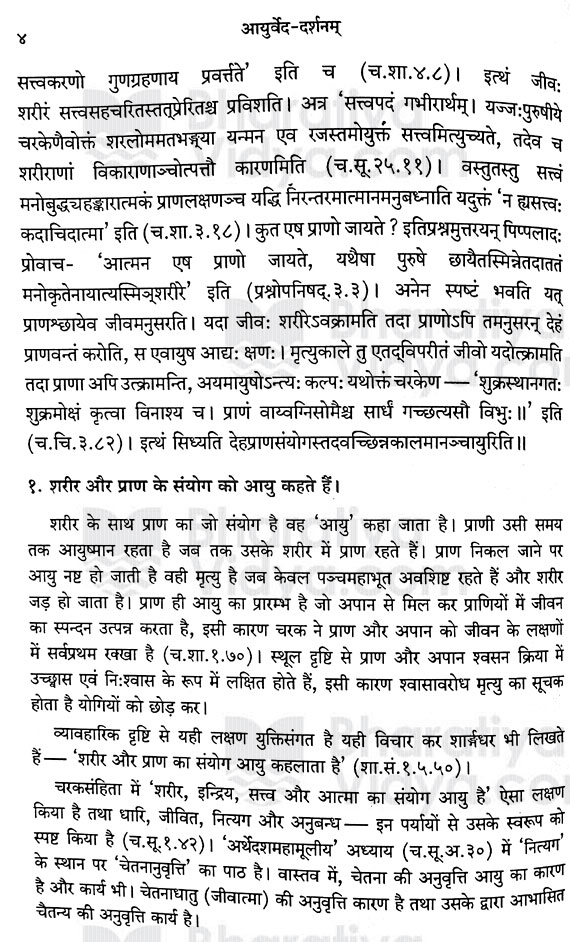
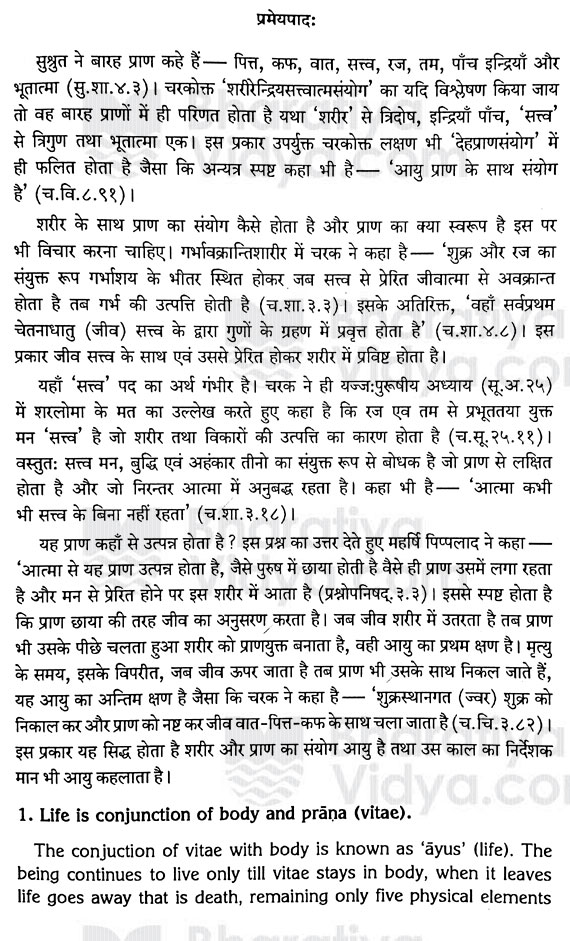

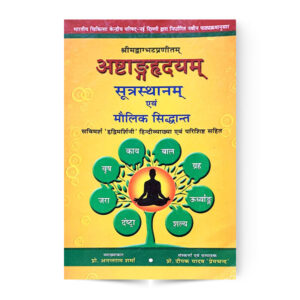
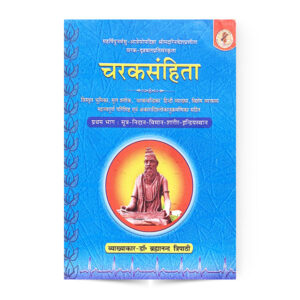
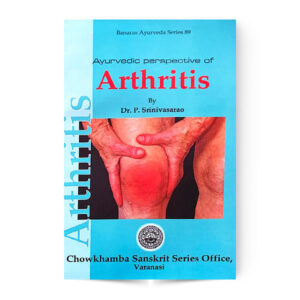
Reviews
There are no reviews yet.